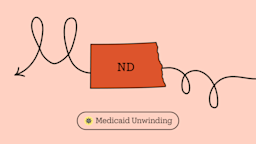Key takeaways:
Medicaid renewals in Oregon are changing because the COVID-19 public health emergency (PHE) ended on May 11, 2023. This is being called the unwinding of Medicaid, and some people will lose coverage during this process.
During the COVID PHE, Medicaid renewals were automatic, and enrollees had continuous coverage. As part of the unwinding process, automatic renewals for Medicaid and the Children’s Health Insurance Program (CHIP) stopped nationwide on March 31, 2023.
The Oregon Health Authority and the Oregon Department of Human Services have started reviews to determine who is eligible to continue receiving coverage. Make sure the state has your current contact information. If you can’t be reached when it’s your turn to renew, or if you’re no longer eligible for Medicaid, you could lose coverage as early as October 1, 2023.
The U.S. Department of Health and Human Services declared a public health emergency (PHE) for COVID-19 in January 2020. The PHE was renewed a dozen times between January 2020 and February 2023.
People who were eligible for Medicaid coverage at any point during the PHE were able to keep their insurance, even if they were no longer eligible. This is because all 50 states — including Oregon — were required to provide continuous coverage during the PHE.
But the PHE ended on May 11, 2023, and automatic Medicaid renewals stopped on March 31, 2023. As a result, 8 million to 24 million enrollees nationwide could lose Medicaid coverage over the next year as eligibility reviews begin again.
The Oregon Health Authority (OHA) and Oregon Department of Human Services (ODHS) resumed eligibility reviews in April 2023 for the 1.5 million people who are enrolled in the Oregon Health Plan (OHP), which includes Medicaid and the Children’s Health Insurance Program (CHIP). This is called the redetermination process.
Anyone who no longer qualifies could be disenrolled as early as October 1, 2023. In fact, the OHA estimates that between 90,000 to 300,000 people in the state could lose Medicaid or CHIP coverage.
Here’s what you need to know about Medicaid changes in Oregon and what to do if you lose your insurance coverage.
Why is Medicaid changing nationwide?
Now that the PHE has ended, COVID-19 remains a public health priority — just not an emergency. As part of this process, Medicaid renewals are no longer automatic. This is being called the unwinding of Medicaid.
The unwinding will affect Medicaid in every state, Washington, D.C., and five U.S. territories.
What’s happening with Medicaid renewal in Oregon?
The OHA oversees the state’s Medicaid program, which is called the Oregon Health Plan. The ODHS is helping OHA manage the Medicaid renewal process. ODHS and OHA published an unwinding plan that outlines how the state intends to conduct eligibility reviews for enrollees. The renewal process is expected to last for 14 months through June 30, 2024. The state has enough eligibility information from other programs to renew or close some cases automatically.
Read more like this
Explore these related articles, suggested for readers like you.
It’s important for you to confirm or update your individual or household contact information with the state. You can do this in several ways, including by:
Logging in to your account on the ONE Oregon portal
Calling your Coordinated Care Organization
Calling a local community partner certified by the Oregon Health Plan
Calling an ODHS office for self-sufficiency programs or serving people with disabilities or seniors
Visiting an ODHS office for self-sufficiency programs or serving people with disabilities or seniors, though you are advised to call before heading to an office
Calling the ODHS Customer Service Center at 1-800-699-9075
What to expect during the renewal process
In 2022 and early 2023, the OHA and ODHS began alerting Oregon residents about the forthcoming Medicaid unwinding. You may have gotten emails, phone calls, and texts telling you to update your contact information. You also may have seen flyers or notices on social media.
During your renewal month, you will receive one of three letters:
Your Oregon Health Plan coverage was renewed or denied.
More information is needed.
You need to complete a renewal packet.
A phased redetermination process began with enrollees with April renewal dates. They received one of the three letters in April. Those in this group who were sent renewal packets received reminders in the mail in May and in June. Closure notices for those who didn’t submit renewal packets were scheduled for mailing in July. Coverage for those who don’t respond or are no longer eligible will continue for another 60 days until the end of September.
The same process started in May for enrollees with renewal dates in that month. Coverage ends in October for those who fail to submit their renewal packet or no longer qualify for Medicaid.
If you need to reach Oregon Medicaid by phone, call the Oregon Health Plan office at 1-800-699-9075.
Tribal health and Medicaid unwinding
State liaisons are reaching out to Medicaid enrollees who are also members of or affiliated with Native American tribes. The National Indian Health Board estimates that as many as 236,000 American Indians and Alaska Natives (AIs/ANs) could lose coverage during the unwinding.
ODHS and OHA are working with the state’s nine federally recognized tribes to help AIs/ANs who qualify for the Oregon Health Plan retain their coverage.
What should I do if I lose my Medicaid coverage in Oregon?
In order to receive Medicaid in Oregon, you must meet all of the following criteria:
You must be an Oregon resident.
You must be a U.S. citizen, permanent resident, or legal resident. But as of July 1, 2023, a free health insurance program for residents with low incomes that mirrors Medicaid was extended to undocumented immigrants.
You must need assistance with access to healthcare or insurance coverage.
Your annual household income before taxes are withheld must be below the limit for your household size.
In Oregon, you may also qualify for reasons other than income, including if you are:
Pregnant
A child or teenager
Responsible for the care of a child who is 18 years old or younger
Blind
65 years old or older (and meet certain criteria)
A person with a disability, or you have a person in your household who has a qualifying disability
A former foster child 25 or younger
In need of nursing home care
Age 19 and older with family planning needs
In need of treatment for breast or cervical cancer (and have been screened or are still undergoing treatment)
If you no longer qualify for Medicaid or the state can’t reach you when it’s your turn to renew, you will no longer be able to use your benefits — which could leave you temporarily uninsured.
If your case closes due to non-response or ineligibility, but you believe you still qualify, you have 90 days to send your completed renewal packet or request reconsideration. You can also appeal a non-renewal decision within 90 days by requesting a hearing. If you don’t take action by the end of the 90-day reconsideration period, you must submit a new application.
If you lose your coverage but believe you still qualify, you can reapply for Medicaid. You may be uninsured for a while until you’re approved for coverage again.
If you choose not to reapply for Medicaid coverage, or if you’re no longer eligible, you may qualify for other low-cost or free healthcare options. You can also use GoodRx coupons to save on your prescription medications.
If you lose your Medicaid coverage, you may be able to enroll in other health insurance, such as:
Affordable Care Act (ACA) marketplace plan: You may be able to find an ACA health plan for $10 or less per month if you qualify for a premium subsidy. If you lose Medicaid, you can purchase a plan in the ACA marketplace during the unwinding special enrollment period from March 31, 2023 to July 31, 2024.
Employer plan: Your company may offer employer-sponsored health insurance.
Medicare: If you have a qualifying disability or condition — such as end-stage renal disease or ALS (amyotrophic lateral sclerosis), commonly referred to as Lou Gehrig’s disease — you can enroll in Medicare at any age.
Partner’s plan: If you have a spouse or domestic partner who has insurance, you may be able to join their plan during an open enrollment or special enrollment period.
Special plans: Short-term insurance can be a great choice if you anticipate that a better option, like job-based health insurance, will be available soon. You may also consider alternative and limited-benefit plans, such as fixed indemnity, accident, cost-sharing, and catastrophic insurance plans.
Student health plan: If you’re enrolled in a college or university, you may be eligible for a campus health plan.
U.S. Department of Veterans Affairs (VA) benefits: If you are an active-duty service member or a veteran, you may qualify for TRICARE coverage or VA benefits and services.
Oregon Medicaid resources
Here are some resources where you can learn more about Medicaid in Oregon and upcoming changes related to the end of the PHE:
Oregon Medicaid office: The Oregon Department of Human Services and Oregon Health Authority oversee and administer the state’s Medicaid program, which is called the Oregon Health Plan.
Oregon Medicaid self-service portal: You can visit the ONE Oregon portal and access your account online 24/7 to confirm or update your contact information.
Oregon Medicaid redetermination plan: Read more about Oregon’s 14-month unwinding plan.
Oregon Medicaid office phone assistance: You can call the Oregon Health Plan office at 1-800-699-9075.
The bottom line
Automatic Medicaid renewals stopped on March 31, 2023 in advance of the COVID-19 public health emergency's conclusion on May 11, 2023.
As a result, in April 2023, the Oregon Health Authority and Oregon Department of Human Services resumed Medicaid and Children’s Health Insurance Program eligibility reviews.
It's crucial that you confirm or update your contact information so that you can be reached when it’s your turn to renew. If your eligibility cannot be determined, you will be sent a renewal packet due in 60 days. You will receive two reminders to submit your information. If you miss the deadline, you will have another 90 days to request reconsideration before your coverage ends.
If you lose Medicaid coverage, you can reapply. You also may be able to enroll in an Affordable Care Act plan or employer-sponsored insurance.

Why trust our experts?


References
Centers for Medicare & Medicaid Services. (2023). Temporary special enrollment period (SEP) for consumers losing Medicaid or the Children’s Health Insurance Program (CHIP) coverage due to unwinding of the Medicaid continuous enrollment condition – Frequently asked questions (FAQ).
Centers for Medicare & Medicaid Services. (2023). Unwinding and returning to regular operations after COVID-19.
Medicaid.gov. (n.d.). Renew your Medicaid or CHIP coverage.
Oregon Department of Human Services and Oregon Health Authority. (n.d.). Combined standards.
Oregon Department of Human Services and Oregon Health Authority. (n.d.). Your hearing rights.
Oregon Department of Human Services and Oregon Health Authority. (2023). Unwinding the federal public health emergency: HB 4035 report.
Oregon Health Authority. (n.d.). Apply for the Oregon Health Plan (OHP).
Oregon Health Authority. (n.d.). Renewing your Oregon Health Plan (OHP) coverage.
Oregon Secretary of State. (n.d.). Oregon Health Authority: Health Systems Division: Medical assistance programs - Chapter 410.
Terry, L. (2023). Oregon expands free health insurance for low-income residents – regardless of immigration status. OPB.
Terry, L. (2023). Oregon starts review of 1.5 million people on Medicaid to determine who qualifies for free coverage. Oregon Capital Chronicle.
Tolbert, J., et al. (2023). 10 things to know about the unwinding of the Medicaid continuous enrollment provision. Kaiser Family Foundation.
Tribal Health Reform Resource Center. (2023). Medicaid unwinding. National Indian Health Board.
U.S. Administration for Strategic Response and Preparedness. (2020). Determination that a public health emergency exists.
U.S. Administration for Strategic Response and Preparedness. (2023). Renewal of determination that a public health emergency exists.
U.S. Department of Veterans Affairs. (2022). VA & TRICARE information.


















